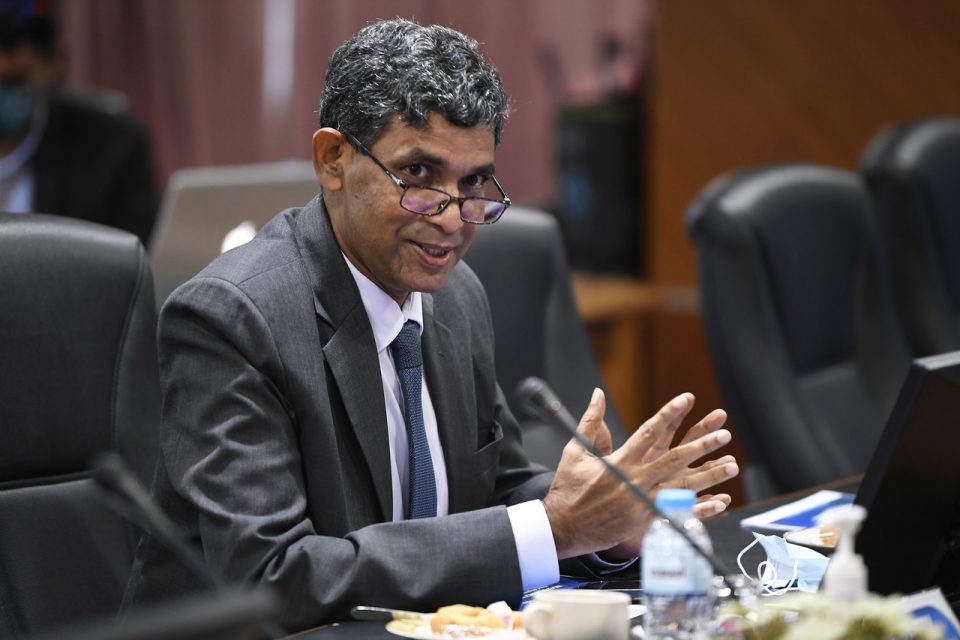KUALA LUMPUR, Aug 23 — Food and agri products contribute to almost US$5.8 billion (RM27 billion) of the US$20 billion (RM93.1 billion) overall bilateral trade in the last financial year 2022 to 2023, about 30 per cent of the India – Malaysia bilateral trade, said India’s High Commissioner to Malaysia B.N. Reddy.
India exported about US$1.8 billion (RM8.38 billion) worth of food and agri products, whereas Malaysia exported over US$4 billion (RM18.6 billion) worth of palm oil and related products to India.
He said within the food basket, India exports meat, marine products, cereals, fruits and vegetables, spices, and sugar to Malaysia.
“It is, therefore, no surprise that food and agribusiness form a significant component of the India-Malaysia bilateral trade basket,” Reddy said in his keynote address at the inaugural ceremony of the B2B meeting led by the Federation of Indian Export Organisations (FIEO) in the food and agri sector.
A 40-member Indian exporter delegation is participating in the two-day event starting Wednesday.
The FIEO is the apex body of all export promotion organisations in India.
“The presence of such a strong delegation from India covering a diverse food and agri products demonstrates India’s broad commitment to establishing meaningful partnerships and exploring avenues of collaboration with Malaysia,” he said.
Reddy pointed out that with the growing challenges to food security globally, India and Malaysia are well placed to overcome these challenges due to geographical proximity, complementarities in food products in each other’s countries, growing confidence in the quality of products, growing use of digital commerce, adherence to phytosanitary compliances, and broad consensus between the two governments to promote this sector for mutual benefit.
“We recognise that there is a significant potential for further expansion. India is now the food basket of the world and Malaysia has been regularly importing a variety of food products from India. On the other hand, India is the largest importer of palm oil from Malaysia and will continue to be so in the coming years,” he said.
Similarly, there have been a few positive developments in the bilateral trade of food and agri products in the past few months.
Indian mangoes have recently obtained approval for export to Malaysia and since December last year, the export of poultry eggs also began from India to Malaysia.
Regarding the opportunities available between the two countries, Reddy said there is enormous scope for trade diversification — India’s range of spices, rice varieties, and dairy products are highly sought after globally while Malaysia’s palm oil, tropical fruits and seafood are globally recognised.
In this context, by leveraging each other’s strengths, both sides can diversify their trade portfolios and cater to a broader bilateral, as well as global market.
The high commissioner added there is also a lot of scope for collaboration along the value chain to maximise returns for India-Malaysia, adding that joint efforts in research and development, technology transfer, and supply chain optimisation could lead to increased productivity and reduced wastage.
“For example, Indian agri-tech startups and Malaysian palm oil plantations can benefit from sharing best practices and innovative solutions. We have over 3,000 agri startups and over 450 agri-tech startups in India as of last month,” he said.
Besides, e-commerce and digital platforms offer unparalleled opportunities to connect buyers and sellers across borders. In this case, e-commerce platforms are catalysing trade, allowing Indian agri-businesses direct access to Malaysian consumers and vice versa.
“The convenience and reach of digital platforms can redefine how we engage in trade. This is yet another area where agri-tech startups can play a crucial role,” Reddy said.
On another issue, India-Malaysia bilateral trade can now be settled in Indian Rupee.
“This means that all trade contracts between Indian and Malaysian traders can now be denominated and invoiced in Indian Rupee and can also be settled in Indian Rupee. This mechanism is operationalised by the India International Bank of Malaysia, based in Kuala Lumpur.
“I encourage all traders to take advantage of this mechanism. There is a detailed FAQ on this subject on the website of the India International Bank of Malaysia,” he said.
— Bernama





